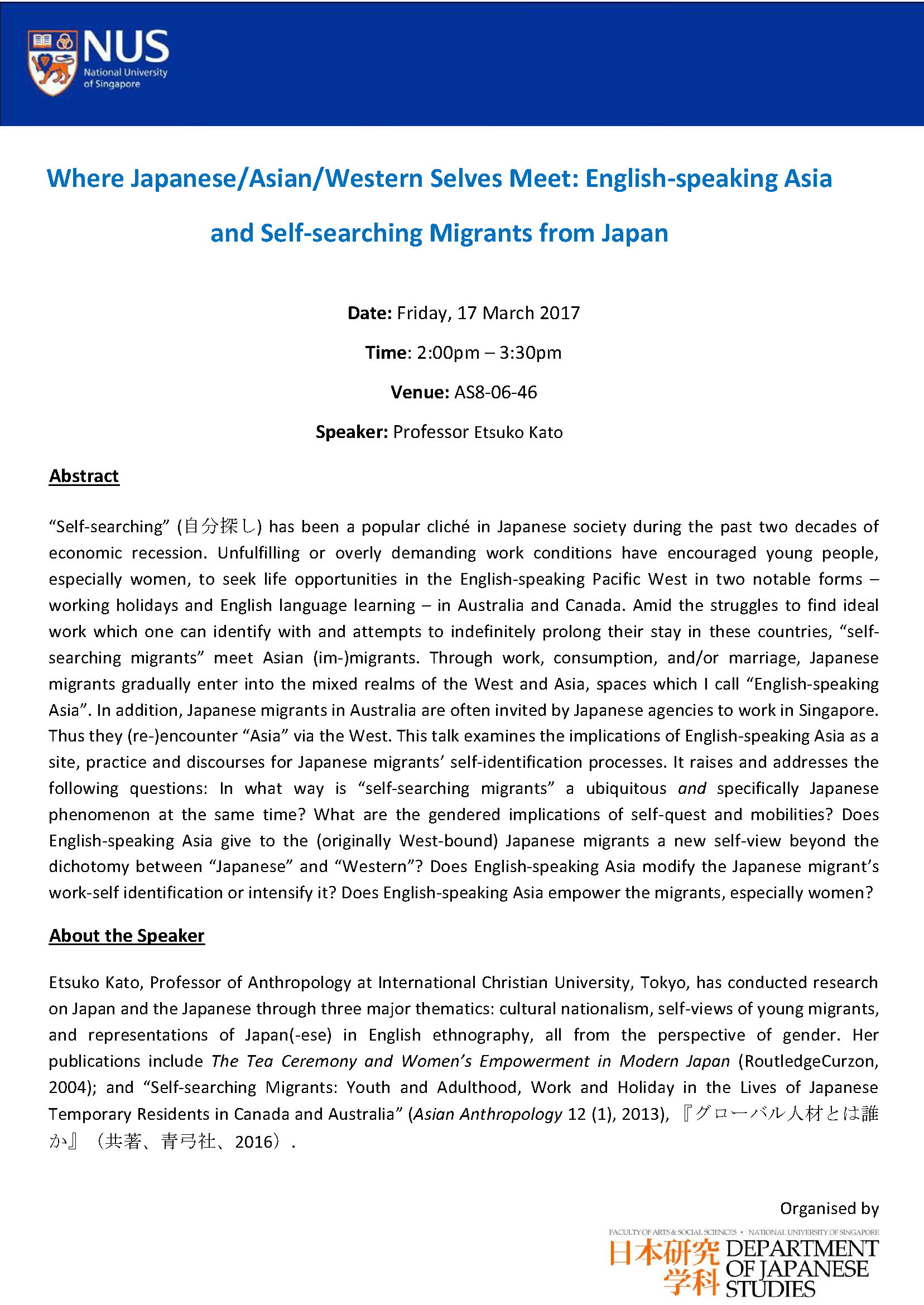Where Japanese/Asian/Western Selves Meet: English-speaking Asia and Self-searching Migrants from Japanese
Abstract
“Self-searching” (自分探し) has been a popular cliché in Japanese society during the past two decades of economic recession. Unfulfilling or overly demanding work conditions have encouraged young people, especially women, to seek life opportunities in the English-speaking Pacific West in two notable forms – working holidays and English language learning – in Australia and Canada. Amid the struggles to find ideal work which one can identify with and attempts to indefinitely prolong their stay in these countries, “selfsearching migrants” meet Asian (im-)migrants. Through work, consumption, and/or marriage, Japanese migrants gradually enter into the mixed realms of the West and Asia, spaces which I call “English-speaking Asia”. In addition, Japanese migrants in Australia are often invited by Japanese agencies to work in Singapore. Thus they (re-)encounter “Asia” via the West. This talk examines the implications of English-speaking Asia as a site, practice and discourses for Japanese migrants’ self-identification processes. It raises and addresses the following questions: In what way is “self-searching migrants” a ubiquitous and specifically Japanese phenomenon at the same time? What are the gendered implications of self-quest and mobilities? Does English-speaking Asia give to the (originally West-bound) Japanese migrants a new self-view beyond the dichotomy between “Japanese” and “Western”? Does English-speaking Asia modify the Japanese migrant’s work-self identification or intensify it? Does English-speaking Asia empower the migrants, especially women?
About the Speaker
Etsuko Kato, Professor of Anthropology at International Christian University, Tokyo, has conducted research on Japan and the Japanese through three major thematics: cultural nationalism, self-views of young migrants, and representations of Japan(-ese) in English ethnography, all from the perspective of gender. Her publications include The Tea Ceremony and Women’s Empowerment in Modern Japan (RoutledgeCurzon, 2004); and “Self-searching Migrants: Youth and Adulthood, Work and Holiday in the Lives of Japanese Temporary Residents in Canada and Australia” (Asian Anthropology 12 (1), 2013), 『グローバル人材とは誰 か』(共著、青弓社、2016).


